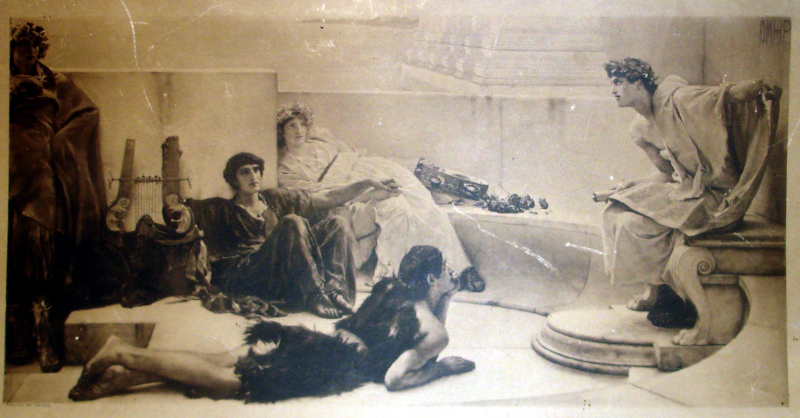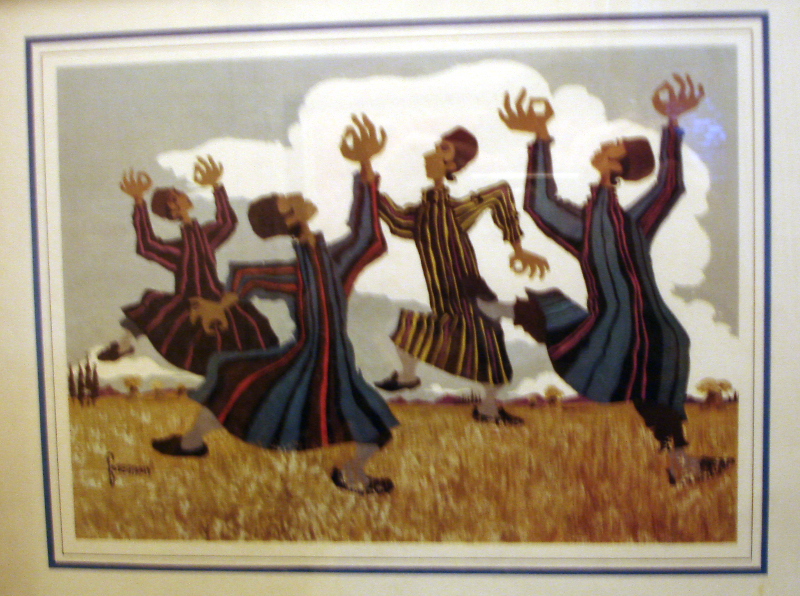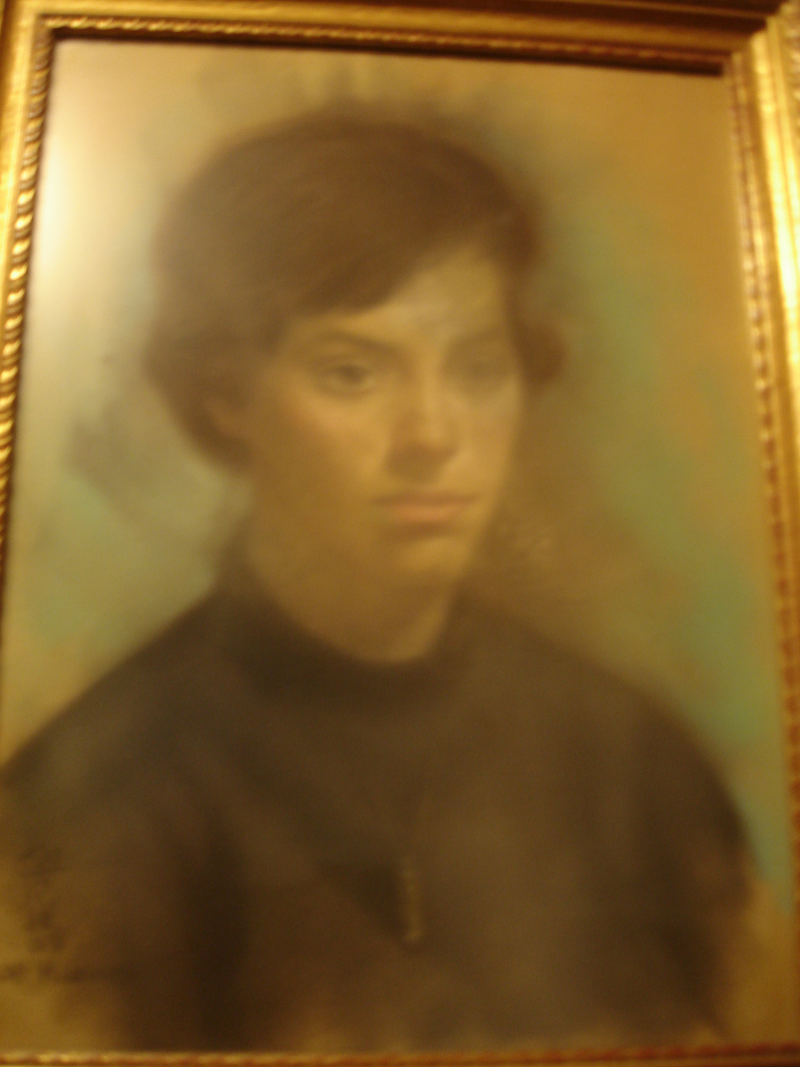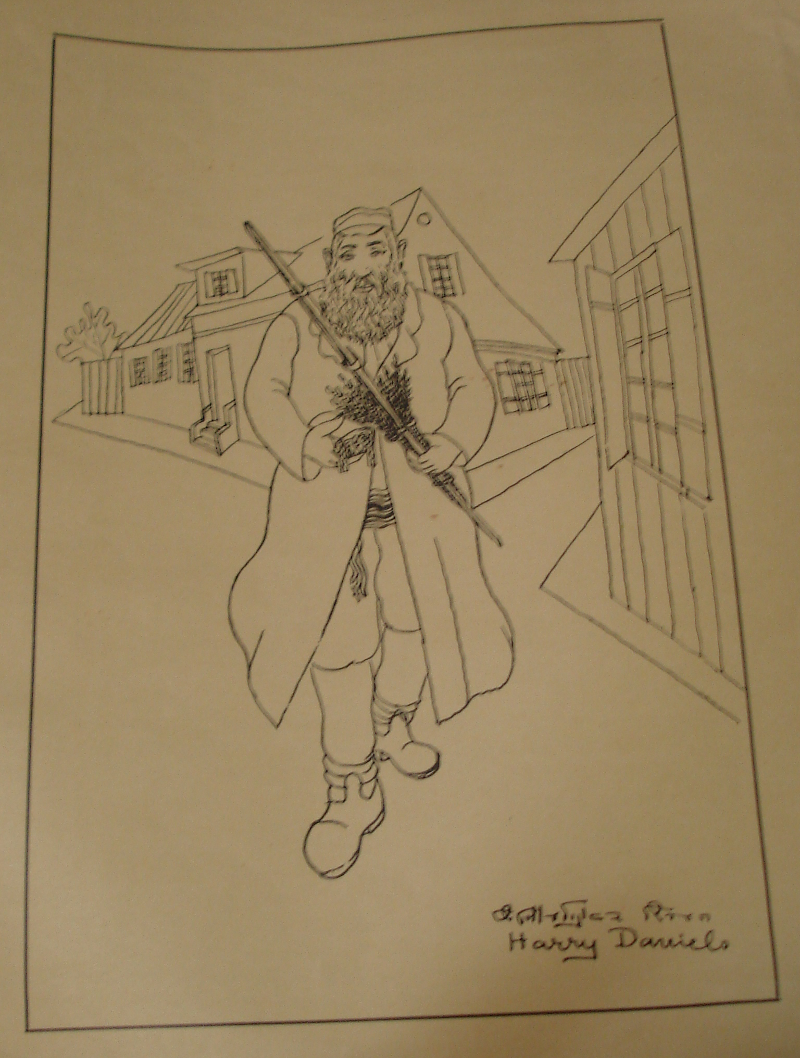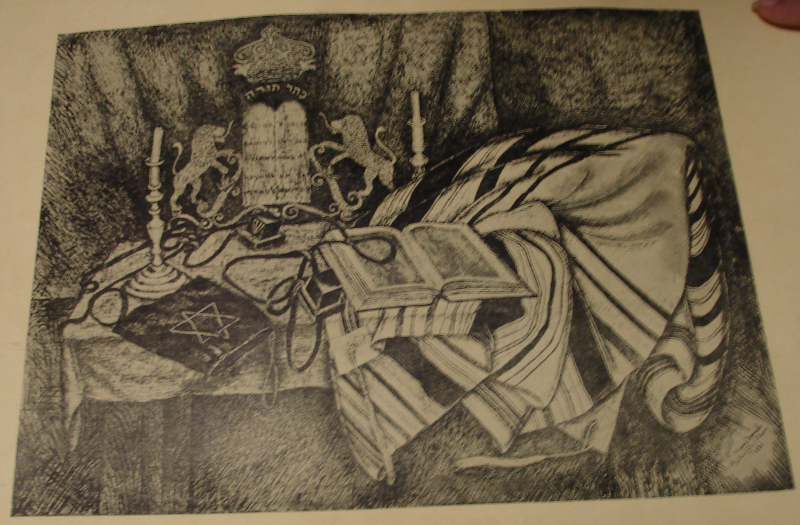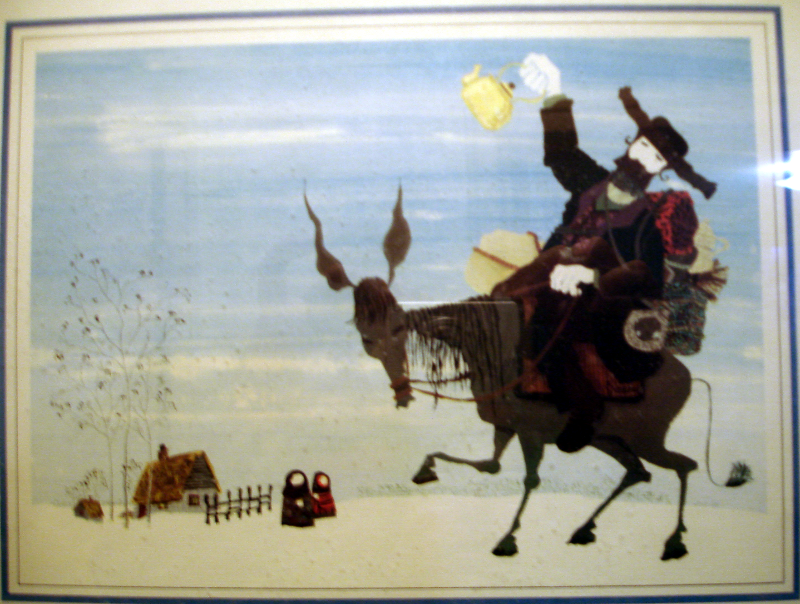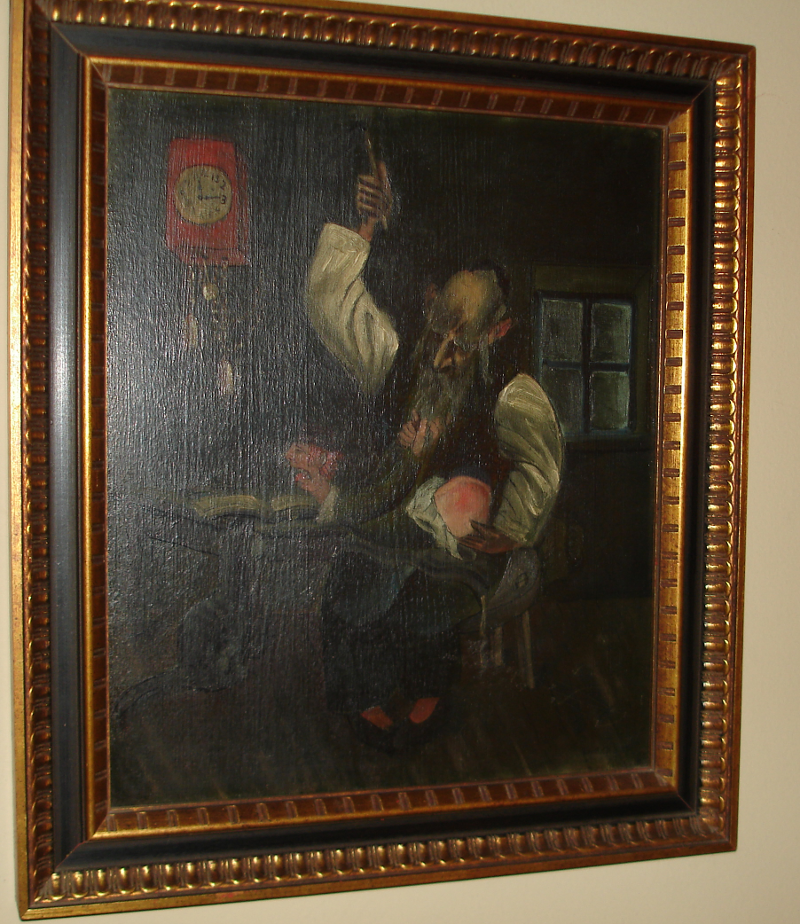
The time in Brooklyn is now:
Mon Feb 16 22:09:23 2026


We endorse the greatest
health and beauty products
and shampoo on the
market -
Maple Holistics
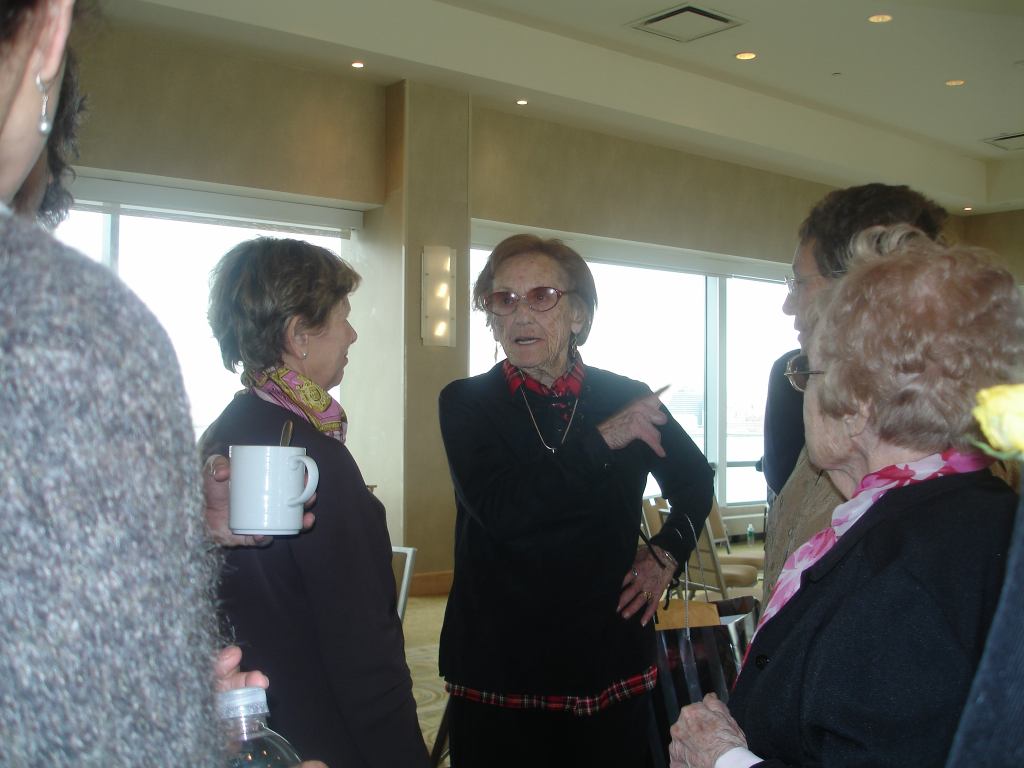
The death of her father was devastating to her and her mother. The family was tossed into turmoil as Rose became unable to cope with the burden of of the children in the wake of the loss, and Esther, by her own accounts, seethed with anger at the world, refusing to even let the casket to be transported to the grave sight without her pulling on the car and refusing to let it go. In what would be her trademark, for better or worse, Esther refused to give up on her father, who had a special relationship with the child. Esther never gave up on anything or anyone.
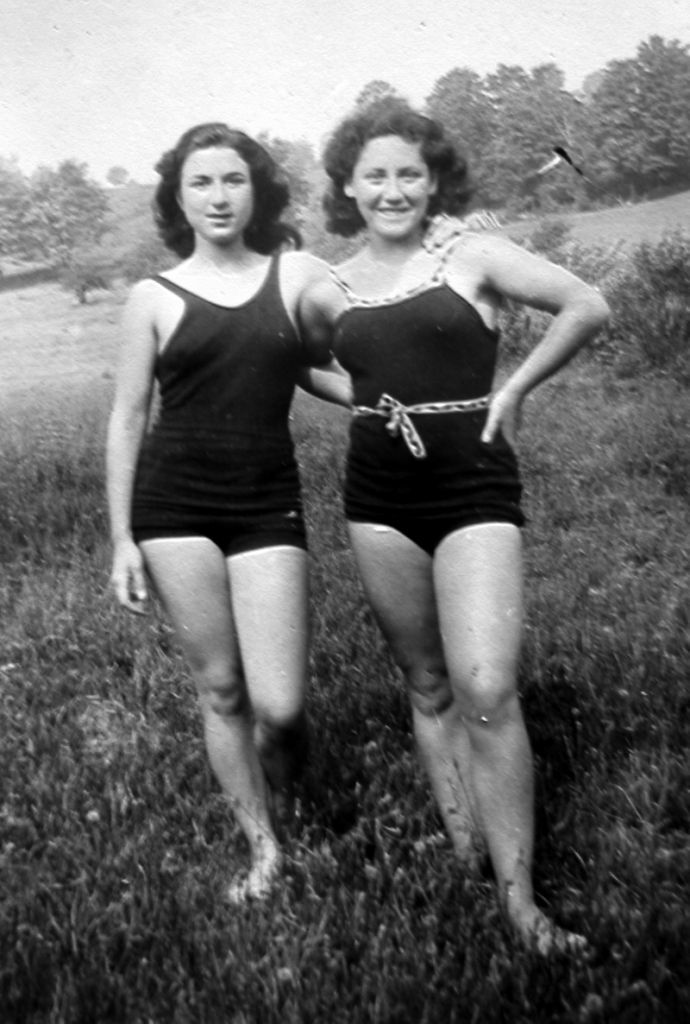
Cousins Judy Bellman and Esther Wallace @ about 1932 in Camp Kindering
Despite the depression, the finances of the family remained intact, and the house on Fairmount Place served at the touchstone for family events for another generation. Esther summered the years in Camp Kindering, and studied in the local public schools, sometimes make problems for her mother who begged her, "Esther please behave. Don't make your Yiddish mother go to meet with those teachers.... implying that there was a bit of antisemitism among the mostly WASP faculty of the local schools. Eventually, Esther made it through and entered Barnard teaching school for Jewish women, and graduated, although I don't think she ever used her degree. Instead she met a charming tall and handsome man, the son of a Industrialist, and excellent saleman, Al Israeloff. They married, and had two daughters, Seana and Sherry Israeloff. They were convientelty born in time to prevent Al from being drafted into WWII.
So all seemed as if life was cruising into a normal post-war boom, suburban lifestyle, except for two things. First, and most importantly, Al Israeloff and Esther's second child, Sherry, was born with fairly significant birth defects. At her birth, of primary concern was that she had a patented heart, meaning there was a hole between the left and right sides of the heart, This happens at times with newborns as that hole is one of the last things to close prior to birth. Sometimes is will close spontaneously, which didn't happen in this case, and today it is treated medically with doses of Indomethacin, a cure that was unknown of at the time. Instead, what they did do was perform open heart surgery in 1947, one of the earliest cases of open heart surgery ever, even more so for pediatrics. Esther managed to get the best heart surgeon available, from Mount Sinai Medical Center, and the entire state of the art procedure cost her an astonishing $4000, without insurance. (Yes to the math on that, even with inflation. It would cost more today just to have a normal healthy delivery). The child recovered, but that wasn't the end. It was the beginning of a life long struggle.
Sherry suffered other birth defects which included deafness in the left ear, if I recall correctly, problems with her eyes that eventually required her to have cataracts done to the eye in the 1970s, a common enough procedure today, but quite a big deal in those days, and requiring the use of soft contact lenses, when they were a new thing, as well. He immunity seemed to suffer problems and she eventually died at the age of 43 of Strep Meningitis in 1988. That itself was a day I will never forget. She had emotional difficulties, suffering from debilitating depression, and she suffered from a ferocious sibling rivalry with her older sister, which was and still is nearly as much of a mental illness as any form of diagnosis one would find today in Merck Manual. The sicker Sherry became, the greater was the jealousy from Seana. Esther when reflecting on it had a heavy heart. She felt bad that Seana had to suffer the trauma that Sherry went through, but was conflicted as to what to do about it. Esthers love and compassion for Sherry was unlike any I had ever witnessed, and Sherry needed all the attention that she received. On the other hand, my mother, Sherry, knew it, and was very good at pulling emotional strings at will. For Sherry it was puzzled as to why these behaviors didn't work so well on the husbands and children (such as me) as it did for Esther.
Perhaps the biggest victim of the constant illnesses was Esther's Marriage. Al Israeloff had a terrible time coping with the problems and while this history has been largely lost in the fog of time, Esther had made it clear that Al would retract from the troubles, leaving her often alone to cope with the misery. She recalled this wth some sympathy, which gave way to stern anger. It was a theme that would show up repeatedly in the future, not just with Al Israeloff, but with Marty Schean, one of my step fathers, and Bill Linarelli, another step father, once my mother died and left children and young adults behind. Esther felt that whenever things went wrong, it was always her who had to pick up the ball, and this was mostly true. She was the most competent, most stable and most caring of all the individuals involved on all these dramas, and she carried the weight of the entire family on her shoulders.
All of this, however, probably would not had destroyed her first marriage to Al Israeloff, however, except that Esther refused to live by the rules of the game, back in 1947, which said that if you marry a well off handsome placed young man, who took care of you financially, that you were supposed to expect him to cheat on you. Unlike Hillary and JackieO, Esther was not going to tolerate that, and against the advice of her friends and mother, she took her two daughters, including the handicapped Sherry, and walked out of the marriage, leaving Al Israeloff, to the dismay of her father-in-law, Nathan, who adored her. In fact, through the divorce and through the time she was single, Esther continued to depend on her former father-law-law for support, cars, other family related matters. And with that, Esther reentered the singles market, looking of a man who was independent, handsome, caring, and willing to accept her two daughters, including one with serious handicaps. Also in tow was the widower mother, and extended family, for she had nearly 20 cousins who lived near her in the Bronx, especially here Uncle Louie.
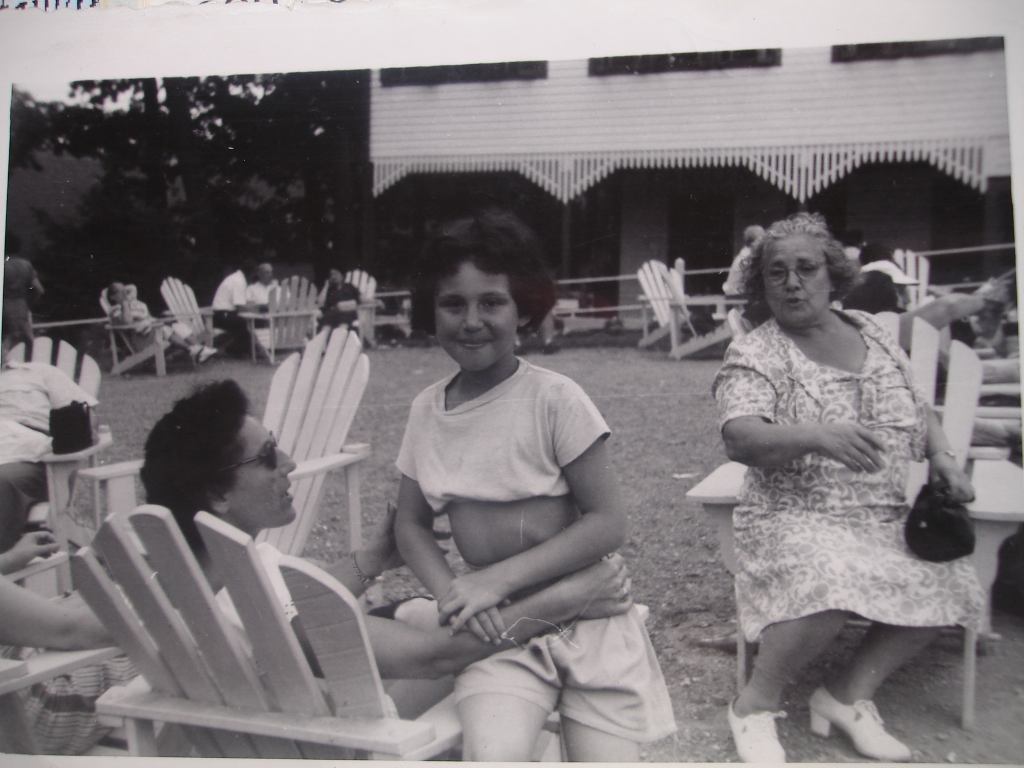
Seana, Rose and Esther
And indeed, she found such a man, networking through her large family, but he was not going to come from the Bronx. No, not the Bronx. Only Brooklyn seems to be able to provide such super men, and so she met through an uncle, Uncle Moishe, a man named Albert Wallace, of fame from Brighton Beach, member of the inaugural class of Abraham Lincoln HS, who so too was carrying the burden of a child, in this case a son, Stephen Wallace. For the rest of her life she would complain that the air in Brooklyn was of poor quality, not nearly as good as in the Bronx...but I think she was partial to our men folk.
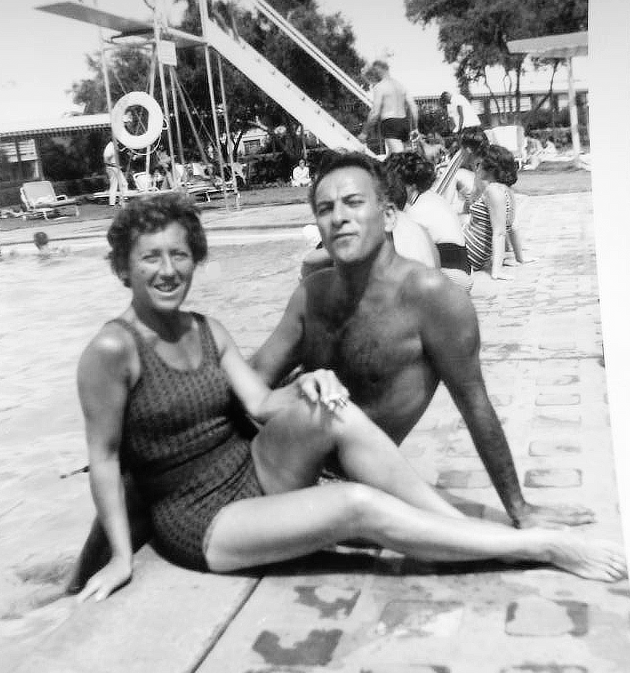
Esther and Albert Wallace
Albert Wallace, whose Family name was originally Herschberger, came from a poor Orthodox Jewish family in Brighton Beach. It wasn't obvious when you met him, but his family struggled to survive in Brighton, renting their home, which was a bungelow on the pocket of small Brighton streets and places off of the Brighton Line. His mother ran the numbers for the local Jewish mob, and he would make deliveries down near the old Paramount Theater in Dekalb Avenue. He related this to us on a cab right back from BAM where we took in Shakespeare's "Much Todo About Nothing". He was telling how he was stopped by the bet cops who asked him what all these numbers in his notebook was, and he told them it was his homework. Such was his life in the rough and tumble 1930's. He was born in 1913, one of 8 children. When his sister, Beryl, started to make a career as a Hollywood Actress, working with Earl Carroll, the family changed its name to Wallace and pulled up roots to go west to Los Angeles, where his son and my Uncle still owns property on Hollywood and Vine.
Al, or Gramps, as I call him, would tell stories of his time working on Catalina Island, and his focus was always on the business end of events. He outlined how it was necessary to prevent theft of the liqueur by marking the bottles and marking the glasses. He had a mind for business that was as sharp as anyone who ever lived. At the end of his life, he had accumulated a small fortune of several million dollars, working most of his life as a Hair Dresser, earning the money the hard way, a nickel at a time. His sister Beryl died in a plane crash on June 17th, 1948. His married a starlet and had a son, but she was emotionally unstable and just disappeared, leaving him the young child. The experience was so bitter for him, he barely ever spoke of it, and to this day, I'm not certain of Stephen's mothers name (maybe it was Eve). Stung by this experience, he returned to Brooklyn, and set up a beauty shop on Avenue J in Brooklyn. After a brush with the Merchant Marines at the end of the War, he established his shop in the location where the present Garden of Eat In is located at. His Neighbor was a Pharmacy owned by Esther's cousin Moishe. Moishe, being a good cousin, told Al about Esther and they meet.
Esther was impressed with the first date, a date on a weeknight, and was impressed with Al's green sporty car. However, she held off from him when she only received offers for dates on weekday nights. When Al finally asked her for a Saturday night date, the Siduch was made. Her reasoning was that he was saving his weekends for better dates and she was being made second fiddle. The Saturday date set her mind at ease. And within short order, Esther had moved to Brooklyn and married Al Wallace, living at 2006 Pearson Street, in Filmore Gardens, for the rest of her life. I'm not sure if they really understood the powerful tandem that they created together, and as they lived longer, they're skills at handling people and the family became stronger. In time, as her mother passed, she established herself as the clear matriarch of the family. Together they had a nearly perfect marriage, and became the focal point of all the family affairs.
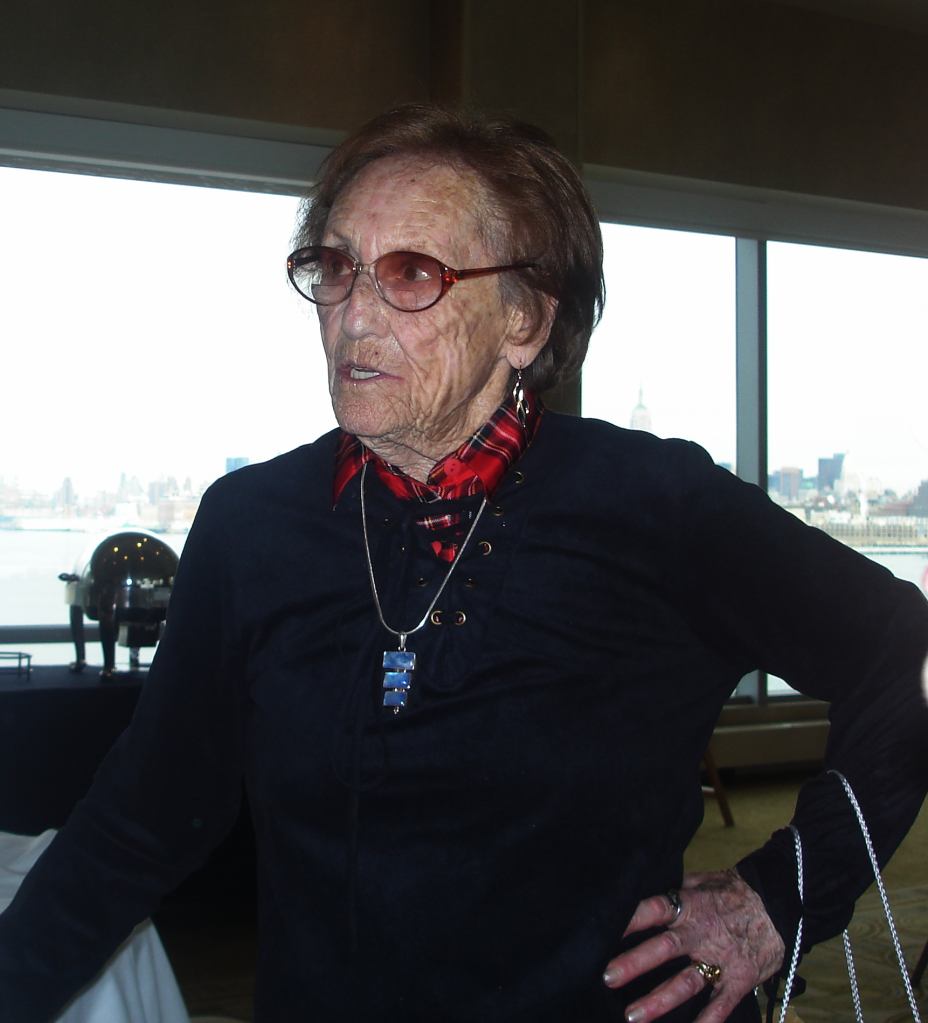
Esther at her 90th Birthday Party
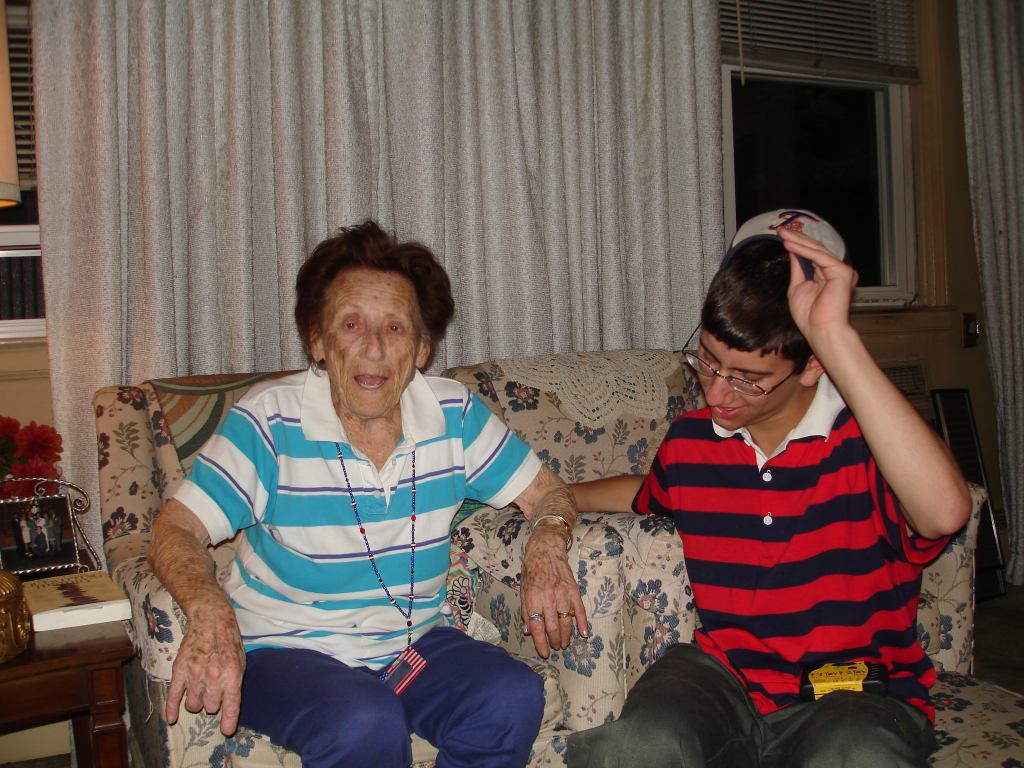
Esther and Dovid at 2006 Pearson
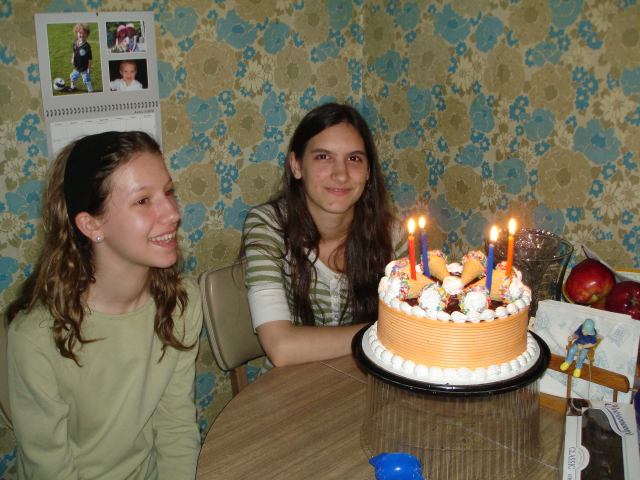
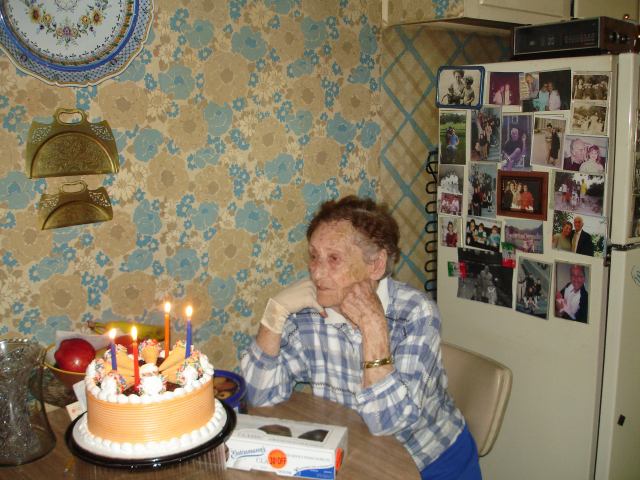
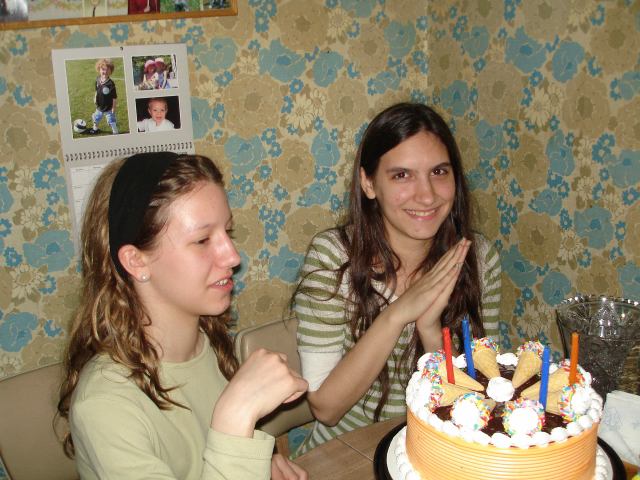
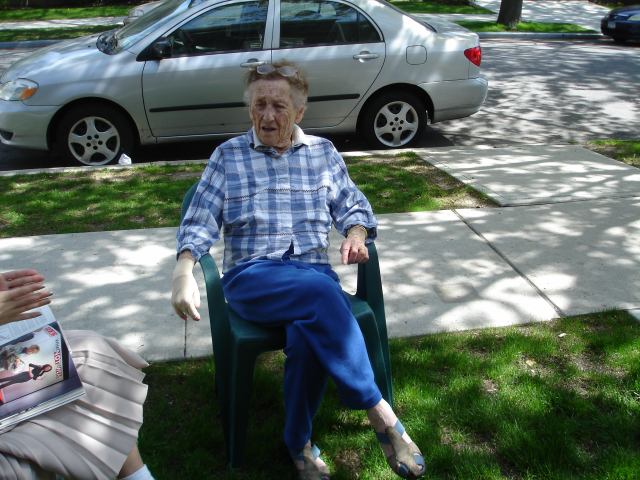
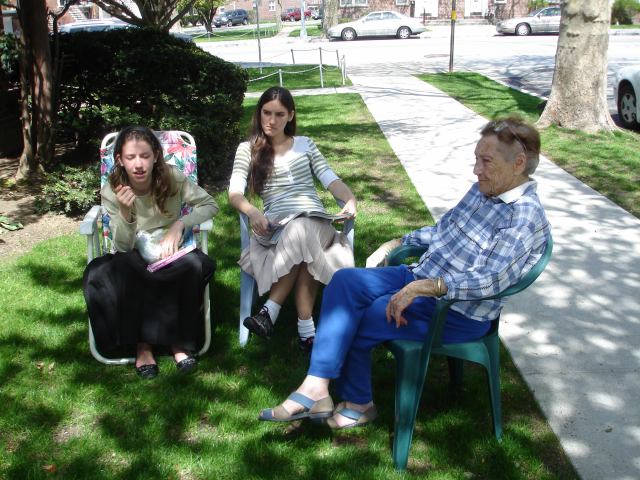
Celebrating a Birthday party at Esther's Kitchen in 2009
This page might seem to balance more towards Esther than to Al, but I want to emphasis that I loved them both equally and they were completely a team. It just so happens that Esther outlived her husband for several years, and we have more photographs of her early family, for whatever reason. But until his death, it was impossible to think of one without the other.
Esther as a caregiver accumulated, perhaps more memories. When I lived with them on Pearson Street at various times, she would have a perfect Breakfast ready on the small round table that served at the dinning room table in her kitchen, prior to me getting out of the shower, every time. As a young adult, I was a bike messenger and living in the house. I decided to see how well I can stretch this and woke up at 4:00AM and she had breakfast ready and at the table, and her in her traditional position, ready for a counseling session, at 4:15AM. So I though, hmm, amazing. So I woke the next morning at 3:30AM, and she was ready at 3:45AM. So then I felt really really guilty so I ended the experiment and vowed to never wake before 5:30AM.
We managed many family crisis's together. My mother suffered from cycles of functional breakdowns with lead to cycles of family crisis. It was very hard on us, especially for Esther, who always stepped forward to handle these crisis's. As I grew older, I took a greater and greater prominent role, but always in collaboration. In the end, she slipped into reclusion, largely at the urging of my mothers then husband. The end result was the death of my mother, as we were only closely in contact when the final distress calls went out from my sister, who was living with her, on that Shabbos afternoon.
Of course, this might be a little unfair, because it seems that preserving her life was a function of colossal will by Al and Esther, almost from her both, and eventually circumstances would eventually win, but it seems that we could have preserved her life quite a bit longer if she had not entirely alienated us at that stretch of time.
That night in August when I left for the hospital and reported to my Grandparents the state of my mother, which was that she seemed to be suffering meningitis and had almost no chance of surviving, Esther threw herself on the floor, reliving a huge collection of regrets. I tried to be consoling, and went over a retrospective of all of our efforts, but her guilt was as thick frozen peanut butter.
She lead the follow up of Sherry's death. Sherry left behind my young sister Rani. Recalling the frustration she had with Al Israeloff ducking out of his responsibilities with Sherry, she lectured Rani's father on his responsibility towards his daughter, and refused to step forward as a caregiver for Rani. I didn't necessarily agree, but it wasn't my call. I made a half hearted attempt to intervene, to assure that Rani was closer to the family core, but in the end, I didn't want to countermand the family matriarch. Aside which, without Esthers support, it couldn't be effectively done. I do feel bad that Rani very experienced the level of love and caring that Al and Esther provided in their home, because it is the single most important experience I ever had. I guess I was lucky that they hated my father so much that they refused to talk to him
In fact, when I got married, I hunted out my paternal grandfather and invited him to the wedding. Esther had a fit, a genuinely childish fit and it was the only time I had experienced that from her. It lead to the only time in her life that she apologized to me, or to anyone that I could remember. The passionate hatred she had for my father and his family had never been obvious to me until that moment. Her contempt tracked decades. She blamed them for taking away her daughter who she cared for so much, and ruining the foundation that she had built for Sherry. And she never forgave them.
After my mother announced her engagement, Morris's parents, that is my grandparents as Morris was my father, came from the Lower East Side to Mill Basin, on the far side of Brooklyn, using a series of buses. Both Esther and Al related this story to me with disdain, and I never really understood the animosity to this event. Surely it was crazy, but there are many many crazy people, and people are crazy over different things. But I think you needed to understand the anger in the complete picture of struggles of the family over Sherry, and her constant health and emotional problems. To invest so much into the wellbeing of one child, and to see that unravel in front of your eyes is deeply upsetting. And they showed this anger.
Of course, Esther liked to tell the story of when she was divorced that that she met a man who wanted to marry her and run a fruit stand with her. She was incensed with that, as well, and the idea that because she was a divorcee in the 1940's, that she would be relegated to such a pedestrian lifestyle. Instead she married a barber. :)
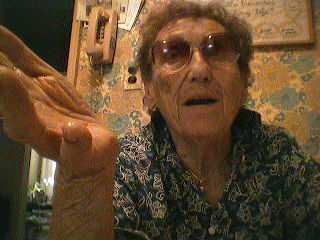
|
That being said the love of Ruben's life was, aside from the kids, his 94 year old Grandmother, Esther Wallace, of blessed memory, who we couldn't say enough about. Her 90th Birthday was January, 2007. This is by far the most beautiful women on earth, and she made great oatmeal. If your were ever lucky enough to be around her kitchen table at 7AM, you had a once in a life experience. She was by far the most insightful, intelligent conversationalist I'd ever met, and had 90 years of archives to which she exploited as a teacher, friend and confident.
Here is a movie of
Esther's Museum.
It it you can give you a small sense her compassionate charm and
loving touch. About half way through, you'll hear a frank,
unflinching, conversation about her age and death. At the end
she pulls out a surprise. There is a companion movie as well,
which covers more of her personal collection.
